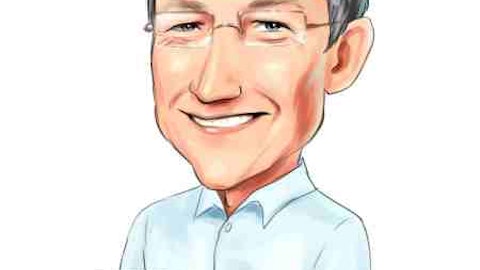Jessica Reif Ehrlich: Thank you.
Alexia Quadrani: Thank you. Next question.
Operator: And our next question comes from Ben Swinburne with Morgan Stanley. Please go ahead.
Ben Swinburne: Thank you. Good afternoon. Bob, I’m sure one reaction you’ll get today from all this news is the future of television, I think is viewed as being streamed with linear obviously declining. I’m sure you generally agree with that trend. So how do you think about that about your strategy as you’ve laid out today in the context of that to make sure you’re maximizing the returns globally of the franchises that you’ve built? And then I was just wondering, maybe, Christine, on the Parks business, really strong margins this quarter, really kind of the return to the kind of incremental margins we’re used to seeing, didn’t sound like there was anything one-time. I just wanted to ask if this quarter is sort of emblematic of kind of how you see the rest of the year playing out from a trend point of view? Thank you, both.
Bob Iger: Thanks, Ben. Nice to hear from you. I’ve been watching this very carefully for a long time. And what I’m talking about is the impact of technology is basically creating a huge authority shift from the producer and the distributor to the consumer. And as that authority has shifted, it’s made the traditional business more complicated, more to more challenging. And when you think about what streaming is, and we talked about this a lot as it related to multichannel TV, it is the ultimate ala card proposition for the consumer. It gives the consumer so much more authority than they ever had before because in reality, it gives them the ability to watch programs, not channels, not even bundles when you think about it. And because you are signing up in most cases for a 1-month subscription, you can sign up for one program, pay a relatively small amount of money and then end up basically unsubscribing.
That’s tremendous change. And I think what’s going on right now is that as the linear business continues to erode, we have been basically eyes wide open on that. Christine commented about some of the challenges related to that, the streaming business, which I believe is the future and has been growing is not delivering basically the kind of profitability or bottom line results that the linear business delivered for us over a few decades. And so we are in a very interesting transition period, but one I think is inevitably heading towards streaming. So, what we are €“ the way we are basically contending with it, we have alluded to it today already is that €“ and this, I think is also directly related to our restructuring. We are going to rebalance a bit because those linear channels and movie theaters too still can provide us with significant amount of monetization capability.
They enable us to amortize the cost better over multiple platforms and create some marketing cloud. When you think about it, Abbott Elementary airs on ABC, then it goes to Hulu. The demographic difference in age is tremendous. It’s like 60-years-old or around, estimating on ABC and then the 30s on Hulu. That’s a perfect example how the linear platforms, while they still have an audience and could help us monetize can still be used effectively, and we have that ability. And so we are going to monitor it very carefully. We are not in any way stepping away from streaming. It remains our number one priority. It is in many respects, our future. But we are not going to abandon the linear or the traditional platforms while they can still be a benefit to us and our shareholders.





